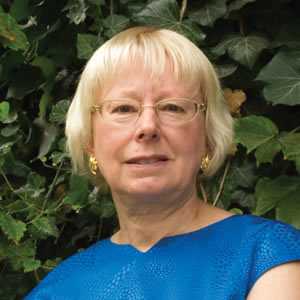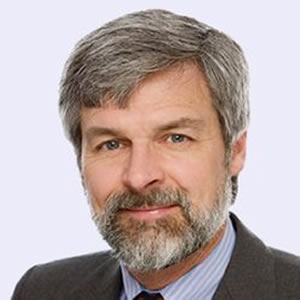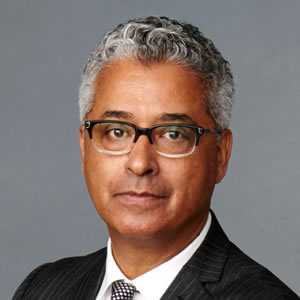Lorne Michaels (BA 1966), the man behind Saturday Night Live, reminisced about his undergraduate years at U of T at a New York event in March. “The things I studied had little practical application — 19th-century Victorian novels, philosophy courses, even a music appreciation course,” he said. But he also noted one particularly practical idea that ran throughout his courses: “They were all steeped in some notion of what it was like to learn to think, and that probably served me well — more than anything else in my education.”

Critical thinking is one of the abilities most emphasized in the humanities. Others are problem solving, research skills, empathy, understanding of different cultures, decision-making, collaboration and excellent communication skills — all abilities that are not only in high demand by employers but useful in whatever role students take on in their future lives.
For Joan Andersen (BA 1976), who studied Germanic languages & literatures, the real value of education is “not about learning in preparation for a specific career – it’s more about focusing on the soft or transferable skills which we learn in the course of pursuing our studies, which can be applied to a myriad of jobs or careers. I’m talking about skills such as planning and organizing, research, analysis, communication and even leadership in terms of participating in university life.”

Since retiring as Honda Canada’s assistant vice president of human resources and administration, Andersen has devoted herself to teaching leadership and management courses, philanthropy and volunteer work, including mentoring students on their future careers in the Faculty of Arts & Science Backpack to Briefcase (b2B) program.
The bottom line for me is that the success and fulfillment which I have achieved in my life is a direct result of my education, and specifically the University of Toronto. Wherever I have gone around the world, the mention of being a graduate of this institution has garnered immediate respect and opened many doors for me.”

Today’s career paths are less linear than in the past and this means students need to be prepared to change course several times in their career lifetimes. Rani Pooran (BA 2001, MI 2004), who studied Spanish, history and political science, came back to campus this spring to speak to current students about their future careers at the Next Steps conference. Her advice to new graduates is: set a direction but remain flexible and develop resiliency. “There will be unexpected turns and you may not get exactly what you are seeking when you want it.”
A senior advisor with BMO, Pooran has held positions with PwC and KPMG, including roles based in the United Kingdom and United States. Unsurprisingly, she also advocates gaining international experience to develop and accelerate your career.

Stephen Bowman (BA 1976) studied philosophy during his undergraduate years at U of T before going to law school. “It’s not much of a secret that philosophy is not exactly a practical education to equip a person for a specific trade or calling,” he said but “as experience has borne out, it turned out to be a wonderful preparation for everything.” Today, he’s a managing partner at the law firm Bennett Jones LLP.
“The focus on ideas, analysis and truth-seeking were of immense help to me when I enrolled in the Faculty of Law and subsequently began practicing as a lawyer. Law school is notorious for being considered a lot of work and quite difficult, but I found that after four years of philosophy I was well-suited to the job of tackling large amounts of reading and thinking through the implications of what I was studying. As a matter of fact, what I gained in my four years studying philosophy continues to inform my thinking about law and legal issues.”

Corporate lawyer Philip Symmonds (BA 1984) agrees.
“Practising corporate law requires a great deal of interpretation of agreements, case law and statutes. It is a different process from interpreting a poem or a big novel, but it involves close reading and the exercise of judgment in applying statutes, provisions and tests to facts. Also, studying English improves written and verbal communication skills, which are critical in the practice of law. I recall one writer saying that the way to become a great writer was to read constantly and that too few potential authors invested enough time reading. I think it is true that continuous exposure to good writing makes you a better all-round communicator.”
A volunteer in the b2B program, Symmonds says he hopes the mentorship students receive from alumni helps them feel more confident about the future. “I also hope that they see that people view their own humanities education as having been highly valuable. I think this is important in an era where the value of the humanities is being challenged.”

Clive Veroni (BA 1980, MA 1981) is a leading marketing strategist, media commentator and author of Spin: How Politics Has The Power To Turn Marketing On Its Head, which was a finalist for the 2015 National Business Book Award. While Veroni provides business counsel to large corporations, his only academic studies have been English literature. “I believe that has actually given me an advantage in the business world. As someone with a humanities degree, I have different skills and different ways of approaching problems and finding solutions than my clients and colleagues, who typically have MBAs,” he said.
“If you hire only people with the same kind of training, background and method of analysis, you’re going to get only one kind of solution to problem solving. Having diversity in your workforce is a great benefit.”

